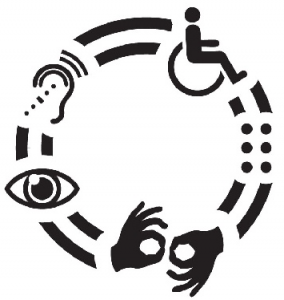 Although it seems hard to believe, fall semester 2015 is in full swing. All summer I have been meeting with your new and returning students to collect their disability related paperwork and help them apply for accommodations.
Although it seems hard to believe, fall semester 2015 is in full swing. All summer I have been meeting with your new and returning students to collect their disability related paperwork and help them apply for accommodations.
By now you may have received an Accommodation Notice email from me. Hopefully, you’re aware of the process. If not, here is a quick summary.
Students who have a condition which significantly alters one or more major life activity, as defined by the Americans with Disabilities Act (which can be found at this link ), may qualify for academic accommodations or adjustments. Typically, the order of events goes like this:
- Student self identifies to my office (or to someone else at NMC who then refers) and makes an appointment.
- I meet with the student and collect documentation to verify the condition. Examples of acceptable documentation are on our website.
- Through conversation with the student and careful review of the supporting documents, reasonable accommodations are approved.
- Notice is sent to instructors and the student.
No time to fire up the Keurig and wait until the rush of spring semester, no way. Now is the time to implement some of these accommodations. For example, if your notice included “books in alternate format”, that means I search for an audio version or PDF of the text. The student needs to qualify with a print disability to receive this accommodation. That just means that they have some kind of condition that hinders their reading. Could be a reading disability or something physical which prevents them from holding a book or turning the pages. If no audio book is available through my super-secret, highly classified sources, I request a PDF from the publisher. That version is often enough for the student who needs to enlarge the text or use a screen reader to have it read aloud. If the student absolutely benefits most from an audio version, I need to convert the PDF using a program called Kurzweil and share the Mp3 file with the student. Whew, I get tired just thinking about it!
If you do have a student in your class who qualifies for books in alternate format, you may want to think about how they will access the handouts you distribute and the information you post on Moodle. Many students use text-to-speech technology to access written material. The team at Educational Media Technologies can assist you in creating materials that are readable by these programs.
In future Scoop posts I will cover more accommodations and how they work. Send your suggestions to LBaumeler@nmc.edu.

